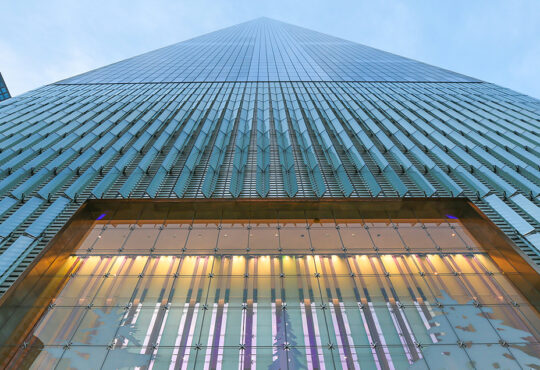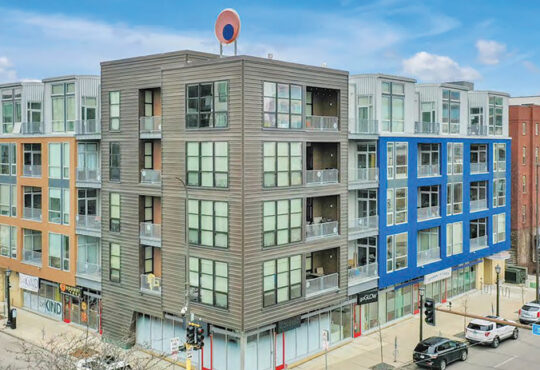Commercial deals drive record $64 bn realty investments in Asia-Pacific | Personal Finance

The Asia-Pacific property market has roared back to life, with commercial real estate investment volumes hitting an all-time high of $63.8 billion in Q3 2025, according to Knight Frank’s Capital Markets Insights report. That’s a 56.8 per cent increase over the same period last year and nearly double Q2 2025 levels.
Year-to-date investment volumes have already reached 80 per cent of 2024’s full-year total, and Knight Frank expects the Asia-Pacific market to surpass $195 billion in 2025, up 10 per cent year-on-year.
Commercial Assets Drive the Rally
Commercial properties—covering offices, retail, hospitality and co-working spaces—were the clear star, capturing 79 per cent of total investments, or about USD 1.4 billion. That’s a 104 per cent jump YoY, highlighting a strong rebound in confidence and transaction activity.
“Q3 2025’s record transaction volume marks a genuine market revival in Asia-Pacific,” said Christine Li, Head of Research, Asia-Pacific, Knight Frank. “Investors are shifting toward active asset management and income-growth strategies, targeting defensive sectors such as living and logistics.”
The residential segment attracted $191.7 million (11 per cent share), down 49 per cent quarter-on-quarter but up 6 per cent YoY. The industrial and warehousing sector, at $85.8 million, surged 168 per cent QoQ thanks to fresh interest in logistics assets.
Cross-Border Investment Flows Rebound
Cross-border investment into Asia-Pacific rose 72 per cent quarter on quarter and 29 per cent YoY to $17.8 billion, led by Australia, which attracted $5 billion, mainly into living and industrial assets.
Japan followed with $3.5 billion, focused on office and multifamily assets, while South Korea drew $2.3 billion, largely in industrial and office properties.
“Constrained future supply of institutional-grade assets and stabilising prices are encouraging cross-border participation,” said Dan Dixon, Head of Capital Markets, Asia-Pacific, Knight Frank. “Deal flow is broad-based across offices, industrial, and living sectors—showing structural, not opportunistic, demand.”
South Korea and China Mainland Lead Regional Growth
South Korea emerged as the region’s top-performing market with $14.3 billion in transactions—up 93.6 per cent YoY—and dominated by office deals, which comprised 70.9 per cent of its total.
Major transactions included the Pangyo Tech One Tower sale for $1.42 billion, the highest-ever office transaction in South Korean history. Global investors such as BentallGreenOak and Aberdeen were among key buyers in Seoul’s CBD.
The Chinese mainland followed closely with USD 13.5 billion (+29.9 per cent YoY), fuelled by data-centre transactions that made up nearly one-third of total volume—most notably Bain Capital’s $3.9 billion divestment of WinTriX DC Group’s Chinese operations to Guangdong Hec Technology.
Australia, with $9.5 billion (+87.8 per cent YoY), benefitted from pricing stabilisation and renewed investor appetite in cities beyond Sydney, while Singapore recorded USD 3.8 billion (+28.6 per cent YoY) on the back of large transactions such as Lendlease REIT’s $356 million sale of Jem’s office component to Keppel Land.
Sectoral Trends: Offices, Hotels, and Industrial Assets Stand Out
Office assets: $23.7 billion (+64 per cent YoY) — Rental growth and limited new supply in major CBDs are pushing values higher.
Industrial: $10.7 billion (-3.7 per cent YoY) — Muted overall, but South Korea bucked the trend (+38.6 per cent).
Hotels: $6.2 billion (+67.7 per cent YoY) — Tourism rebound lifted demand.
Retail: $7.7 billion (-13.4 per cent YoY) — Investor caution persists amid global trade uncertainty.
Outlook: A Confident Q4 Ahead
Knight Frank expects investment momentum to stay firm in Q4 2025, supported by monetary policy clarity and improved liquidity. Despite lingering US-China trade tensions, stabilising cap rates and narrowing yield spreads are boosting investor conviction.
The US continue to deploy the most capital in the region, with resurgence in interest from Canadian and UK institutional investors






